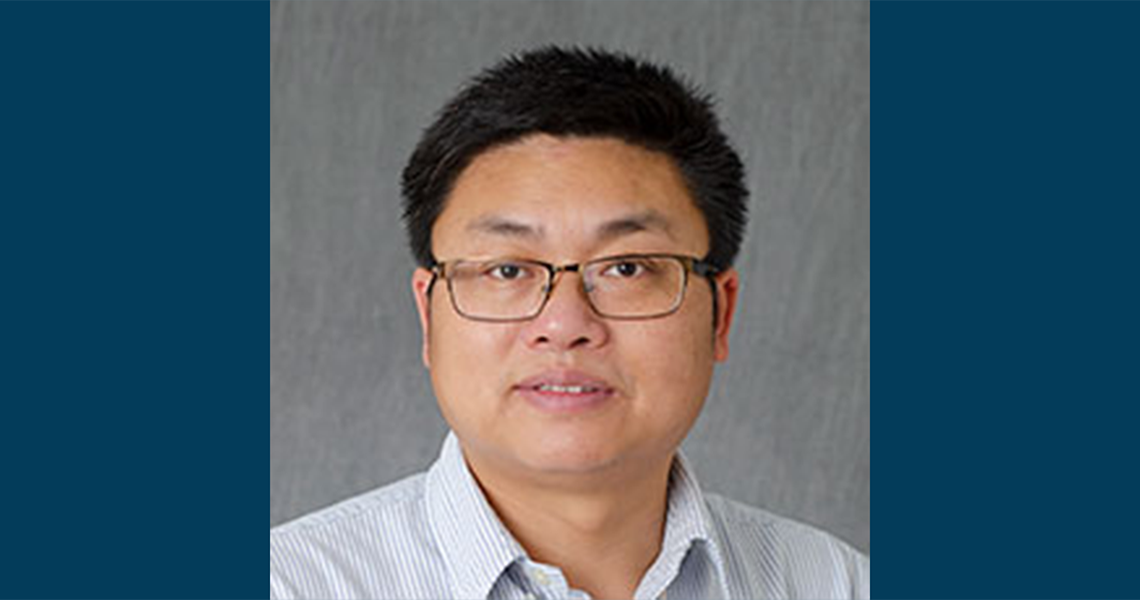WASHINGTON (March 15, 2019) - Researchers at the George Washington University (GW) Cancer Center found that the enzyme USP15 could potentially lead to new treatments for breast and pancreatic cancer. Their findings were published in Nature Communications.
“With this study, we validate the role of USP15 in maintaining genome stability and tumor suppression and inform novel treatments for breast cancer," said Huadong Pei, PhD, assistant professor of biochemistry and molecular medicine at the GW School of Medicine and Health Sciences and senior author on the study. “With consistent research and progress of current studies, we will gain a stronger understanding and a more comprehensive view of USP15 functions in cancer and their role in future treatment strategies."
The Cancer Genome Atlas indicates that USP15 enzyme deletions occur in 16 percent of breast cancers and in 5 percent of pancreatic cancers. Studies have shown that cancer-associated USP15 mutations increase poly ADP ribose polymerase (PARP) inhibitor sensitivity in cancer cells.
PARP inhibitors are a new class of pharmacological inhibitors developed for multiple purposes, but chiefly for the treatment of cancer. They have garnered a great deal of attention for their potential in the management of patients with BRCA mutations.
Pei and his research team found that USP15 regulates homologous recombination - one of the major pathways to repair DNA damage affecting broth strands of the double helix - and cancer cell response to PARP inhibitors.
USP15 is part of a group of deubiquitinating enzymes, responsible for removing ubiquitin chains from proteins and other molecules, which play important roles in maintaining genome stability. Based on their research, Pei and his team believe USP15 may function similarly to the USP4 enzyme, which was found to play a role in DNA repair by Pei’s group four years ago.
“USP15 is a potential biomarker for treatments of pancreatic cancer, as well as breast and ovarian cancers," explained Yihan Peng, a PhD student in Pei’s lab and the first author on the study.
As a next step, researchers will use patient-derived tissue graft models to examine the impact of the USP15 enzyme on radiochemotherapy response. Additionally, they will perform high-throughput screening for USP15 inhibitors.
The study, titled “The Deubiquitylating Enzyme USP15 Regulates Homologous Recombination Repair and Cancer Cell Response to PARP Inhibitors," is published in Nature Communications.
Media: To interview Dr. Pei, please contact Ashley Rizzardo at amrizz713 [at] gwu [dot] edu (amrizz713[at]gwu[dot]edu) or 202-994-8679.
###
About the GW Cancer Center
The George Washington University (GW) Cancer Center is a collaboration of the George Washington University, the GW Hospital and the GW Medical Faculty Associates to expand GW’s efforts in the fight against cancer. The GW Cancer Center also incorporates all existing cancer-related activities at GW, with a vision to create a cancer-free world through groundbreaking research, innovative education and equitable care for all. Learn more about the GW Cancer Center at gwcancercenter.com.




